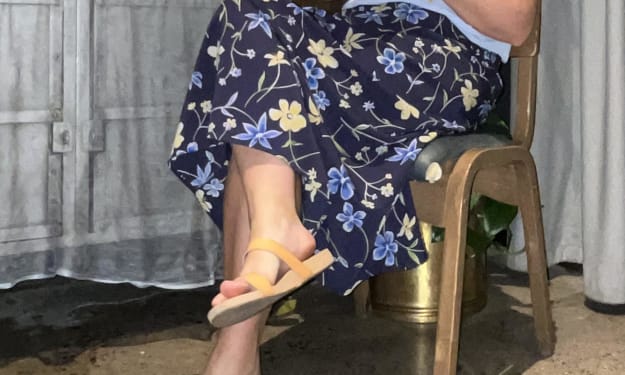Protecting Your Business with Product Liability Insurance on Amazon
Product Liability Insurance for Amazon Sellers

Are you an Amazon seller who wants to safeguard your business against unforeseen product liability claims? Look no further than product liability insurance! As the world's largest online marketplace, Amazon can be a lucrative platform for entrepreneurs. But with great opportunity comes great responsibility to ensure that your products are safe and free from defects. In this blog post, we'll discuss how product liability insurance on Amazon can protect your business and give you peace of mind in the event of any unexpected legal challenges. Let's dive in!
What is Product Liability Insurance?
Product liability insurance is vital protection for businesses that manufacture, distribute, or sell products. It can help cover the costs of lawsuits and settlements resulting from injuries or damages caused by a product.
If your business sells products on Amazon, you need to make sure you're protected against potential liability claims. Amazon requires all sellers to have product liability insurance in place before they can list their products for sale.
There are a few different types of product liability coverage available, so it's important to understand what each one covers. General product liability insurance covers claims arising from injuries or damages caused by any type of product. Completed operations coverage is designed to protect businesses against claims arising from work that has been completed, such as installation or repair services. Products-completed operations coverage can help protect against claims related to problems with the finished product, even if the issue was not caused by the manufacturing process.
No matter what type of product liability insurance you choose, it's important to make sure you have adequate protection in place. The best way to do this is to work with an experienced insurance agent who can help you identify the right coverage for your business needs.
Why Do Amazon Sellers Need Product Liability Insurance?
As an Amazon seller, you are responsible for the products you sell and any injuries or damages that they may cause. This means that you need to have product liability insurance in place in case something goes wrong and someone is injured or their property is damaged as a result of one of your products.
Product liability insurance will protect you financially if you are sued or held liable for damages caused by one of your products. Without this type of insurance, you could be on the hook for thousands of dollars in legal fees and damages, which could quickly bankrupt your business.
While Amazon does provide some limited product liability coverage for sellers, it is important to note that this coverage is not comprehensive and does not extend to all potential risks. For example, Amazon’s coverage does not include intentional acts, recalls, or damage caused by defective products that you sold used.
So, if you are selling products on Amazon, it is important to make sure that you have adequate product liability insurance in place to protect your business from financial ruin in the event that something goes wrong.
The Benefits of Product Liability Insurance
Product liability insurance offers protection for businesses that sell or manufacture products. If a product you sell causes injury or damages, product liability insurance can help cover the costs of legal claims and settlements.
Product liability insurance is important for businesses that sell or manufacture products because it can help protect them from legal claims if their products cause injury or damage. Product liability insurance can help cover the costs of legal defense and any settlements or judgments that may be awarded to the plaintiff.
Product liability insurance is important for businesses of all sizes, but it is especially important for small businesses. Small businesses may not have the resources to defend themselves against a legal claim, and a settlement or judgment could bankrupt them. Product liability insurance can help protect small businesses from these financial risks.
How to Get Product Liability Insurance for Your Amazon Business
If you are an Amazon seller, you know that product liability insurance is a must. But how do you get it? Here are some tips:
1. Shop around. There are many insurers out there who offer product liability insurance for Amazon businesses. Make sure to compare rates and coverage before you choose one.
2. Make sure your policy covers third-party sellers. If you use Amazon Fulfillment by Amazon (FBA), your products are stored and shipped by Amazon. However, if you use a third-party seller to fulfill your orders, make sure your policy covers them as well.
3. Choose a policy with broad coverage. Product liability insurance should cover claims arising from injuries or damages caused by your products. Make sure your policy covers all potential risks, including manufacturing defects, design defects, and failure to warn of dangers.
4. Consider an umbrella policy. If you have other business activities outside of Amazon selling, consider an umbrella policy that will cover all of your business activities under one policy. This can save you money on premiums and give you peace of mind knowing that all of your business activities are covered.
5. Work with an experienced agent or broker. Buying insurance can be complex, so it's important to work with someone who knows the ins and outs of product liability insurance for Amazon businesses
Tips for Choosing the Right Policy for Your Business
When it comes to product liability insurance, there are a few things you'll want to keep in mind in order to choose the right policy for your business. First, you'll need to consider the size and scope of your business. If you're a large company with products that are sold internationally, you'll need a different policy than a small business that only sells locally. You'll also need to think about what kinds of products you sell and how likely they are to cause injury or damage. Next, you'll want to get quotes from several different insurers and compare their rates and coverage options. Make sure you read the fine print of any policy you're considering so that you understand exactly what's covered and what's not. By following these tips, you can be sure that you're getting the right product liability insurance for your business.
How Much Does Product Liability Insurance Cost?
Product liability insurance protects your business from lawsuits alleging that your products caused injury or damage. The cost of product liability insurance depends on the type of business you have, the products you sell, and the level of risk associated with those products.
For example, a business that sells children's toys will likely pay more for product liability insurance than a business that sells office supplies. This is because there is a higher risk associated with children's toys than with office supplies. Businesses that sell products that are known to be dangerous, such as firearms or electrical equipment, will also pay more for product liability insurance.
The cost of product liability insurance also depends on the amount of coverage you purchase. A basic policy may start at $500 per year, but a comprehensive policy can cost $5,000 or more per year. The amount of coverage you need will depend on the size and scope of your business and the risks associated with your products.
Alternatives to Product Liability Insurance
No business is immune to the risk of being sued, especially if you sell products. Even if you take all the necessary precautions, accidents can happen that result in someone being injured by one of your products. If this happens and you are found to be at fault, you could be facing a very expensive lawsuit. This is why it is so important to have product liability insurance.
However, there are some alternatives to product liability insurance that you may want to consider for your business. One alternative is self-insuring. This means that you set aside money each year to cover any potential lawsuits. The downside of this approach is that if you have a large number of claims or a very expensive claim, self-insuring can become very costly.
Another alternative is to create a warranty or guarantee for your products. This can help to cover the cost of repairs or replacement if something goes wrong with one of your products. However, it is important to make sure that your warranty or guarantee does not exempt you from liability in the event of an injury.
You may want to consider using a product liability waiver. This type of waiver can help to protect your business in the event that someone is injured by one of your products. However, it is important to make sure that the waiver is clear and unambiguous so that there is no confusion about what it covers and what it does not cover.
Conclusion
Product liability insurance can be a major asset for businesses selling on Amazon. Not only does it provide protection against financial loss, but it also helps to protect your reputation and offers peace of mind that you are taking the necessary steps to safeguard your business. It is crucial to understand what product liability insurance covers and how much coverage you need. By doing so, you will be able to make an informed decision about whether or not this type of insurance is right for your business.





Comments
There are no comments for this story
Be the first to respond and start the conversation.